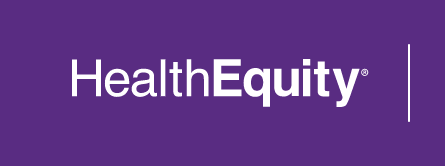"In this world nothing can said to be certain, except death and taxes." - Benjamin Franklin
With the passage of new tax laws in December 2017, the United States Congress made changes for deductions and corporate tax rates, but they left the tax benefits that come from health savings accounts (HSAs) alone. More recently, the annual family contribution for 2018 was reduced (read more here).
HSAs are one of the most tax-advantaged programs allowed by the IRS. Since their creation in 2003, millions of people have taken advantage of the tax savings, healthcare and retirement benefits that come from having an HSA.
When it comes to your employees, HSAs offer three ways to save on taxes.1 As an employer, you can also take advantage of tax savings. Here's how:
1. Save on funds put into HSAs
Your employees can contribute funds to their HSA tax-free1 through payroll contributions (doing this can also lower your FICA tax liability), any matches that you as an employer contribute (doing this may allow you to take a federal income tax deduction), or through earning any incentives you offer through a wellness program.
2. Save on potential earnings in HSAs
Accountholders can potentially earn tax-free money on the funds in their HSA account in two ways. Interest on the cash balance is the most basic way to do this. Different HSA providers will offer different interest rates so finding out the interest rate is an important consideration when deciding which HSA provider to go with. Also, some providers offer tiered interest rates that benefit higher balances.
Another way to potentially increase HSA funds is through investing.2 Most HSA providers offer a range of investment options that accountholders can choose from. As with interest rates, different HSA providers also charge different investment fees, so finding a provider that offers the right investments with the lowest fees can help accountholders grow their HSA funds and keep as much of those funds as possible. (Find out more about HealthEquity's competitive investment options by visiting this blog post: How much does an HSA cost?)
3. Save on funds distributed from HSAs
The third tax advantage from HSAs comes when HSA funds are spent on qualified medical expenses. Distributions from the HSA for these expenses are not taxed. However, if the funds are spent on non-qualified medical expenses, tax savings do not apply and the purchase will also include a 20 percent penalty as well (accountholders age 65 and older can spend HSA funds on non-qualified medical expenses without a penalty).3
Conclusion
The triple-tax advantages of HSAs can help your employees save for medical expenses as well as for retirement. Whether your employees are contributing to, growing or paying medical expenses from an HSA, the tax advantages can be significant over the life of the account.
HealthEquity has dozens of tools for you and your employees to learn more about how HSAs can benefit you. Visit www.healthequity.com/partners/employers/hsa-education-tools to view or download these educational resources.
1. HSAs are never taxed at a federal income tax level when used appropriately for qualified medical expenses. Also, most states recognize HSA funds as tax-free with very few exceptions. Please consult a tax advisor regarding your state's specific rules.
2. Investments available to HSA holders are subject to risk, including the possible loss of the principal invested and are not FDIC insured or guaranteed by HealthEquity, Inc.
3. It is the member's responsibility to ensure eligibility requirements as well as if they are eligible for the plan and expenses submitted. One should consult a tax advisor as individual factors and situations vary.
Nothing in this communication is intended as legal, tax, financial, or medical advice. Consult your advisors for your specific situation.


